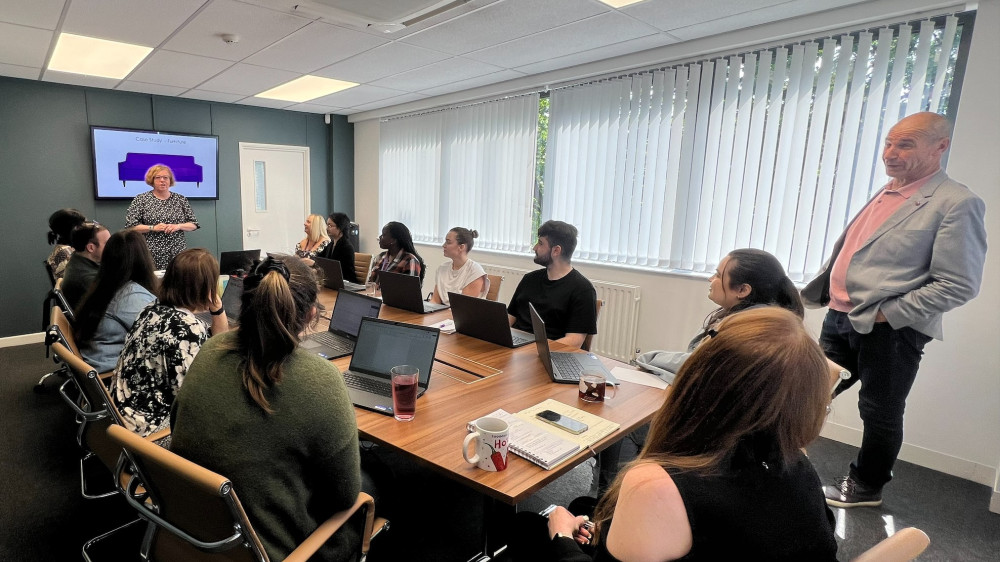FHIO and Rail Ombudsman develop new in-house training

The Furniture & Home Improvement Ombudsman and Rail Ombudsman have developed some new in-house training for their respective teams, building on the foundations of their current approach to induction and know-how provision. Based around the behaviours and skills set out in the Caseworker Competency Framework, the training has been designed to take our Ombudsman and triage teams on a journey through the life of the complaint, focusing afresh on the skills, knowledge and expertise they need in their tool-box to manage complaints effectively and in line with the OA’s values and our own. The sessions are vocationally focussed, with practical application of the effective behaviours required in decision-making and also include sessions relating to sub-conscious bias, mediation skills, written and verbal communication and weighting of different types of evidence.
The three days broadly cover: Understanding and Communicating Process and Information Gathering; Investigation and Communication Techniques; Report/Letter Writing; and Conducting a Conciliation/Mediation with resources and information drawn from a broad range of external sources and internal experience. Each module is broken down into a more granular overview, highlighting the effective behaviours to which the validation and proof of learning are linked.
For example, a module on “Planning and Conducting a Fair Investigation” includes understanding the process, using case management and other systems and tools to "tell the story" of the case; time management, and structuring the investigation. This module is assessed against behaviors such as “Monitoring progress against plans and objectives, knowing when to react to changing circumstances, being flexible to meet demand, and carrying out tasks systematically”.
Similarly, a module on “Questioning & Listening” practically assesses techniques like active listening, using TED (Tell, Explain, Describe), appropriately applying open and closed questions, and “Clean Language” through case studies. This module is measured against behaviors such as clear communication using plain language, acting in accordance with principles like fairness, equality, and respect for individual rights, maintaining neutrality and objectivity, and being open to changing decisions if new information is presented.
We kicked this off in July with modules tailored to promote a fresh perspective amongst our team. Amalgamating all parts of the business and delivering the training across schemes and departments encouraged discussion, an appreciation of the end-to-end process and sharing best practice amongst colleagues. The training was led top-down by members of the Exec and non-Exec board members across a range of formats including written, telephone and video call. The team explored planning and investigation techniques, communication and different ways to deliver a message and put themselves in the place of service users and their colleagues, taking them out of their comfort zone and usual approaches to case management. The three-day session culminated in a “mock mediation”, which was both externally and peer reviewed.
Teniola Opara, one of our Lead Ombudsman, commented that “the team have really benefited from a new approach to skills training, and it is really valuable to see and appreciate other points of view”. Another team member said “I really enjoyed the recent training session, especially the role-playing parts. They gave me a chance to jump in and practice what we were learning in a real-world way. The scenarios felt real and were fun to do, making the whole experience both challenging and enjoyable. This hands-on approach really helped me understand and remember the material better. Overall, the training was great, and I'm looking forward to more sessions like this in the future”.
We will assess the success of the initial roll-out and take learnings on board by surveying staff and asking them to reflect individually and as a collective before moving on to the next stage of development. Using some external resource to help facilitate the sessions going forwards will also help with assessing outputs through an objective lens. With three days, 20 modules shining the spotlight on 70 positive behaviours, there is certainly scope to tailor the next steps to the individual’s learning and development journey!
This training is available for other schemes and can be delivered in various formats/modules, so please don’t hesitate to contact us if you want some more information webinars@disputeresolutionombudsman.org
